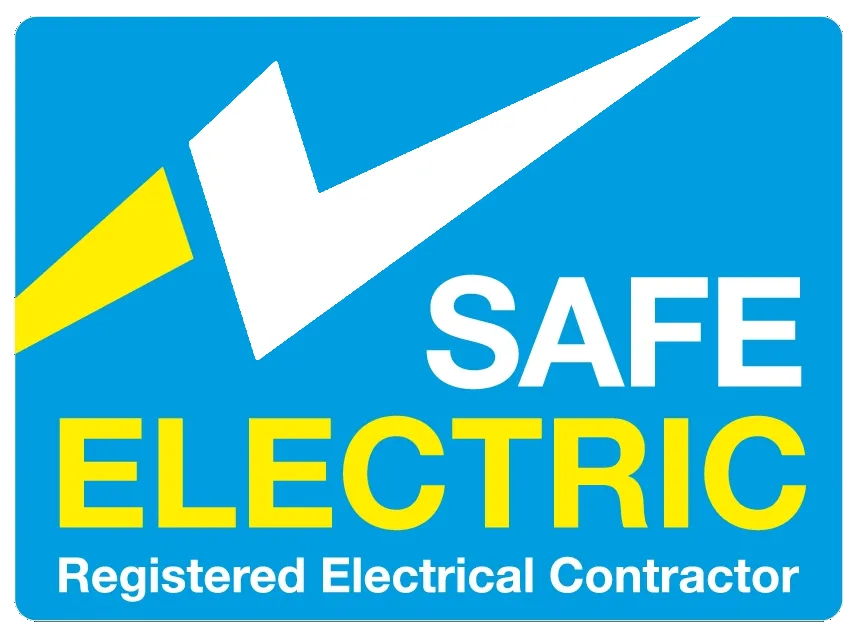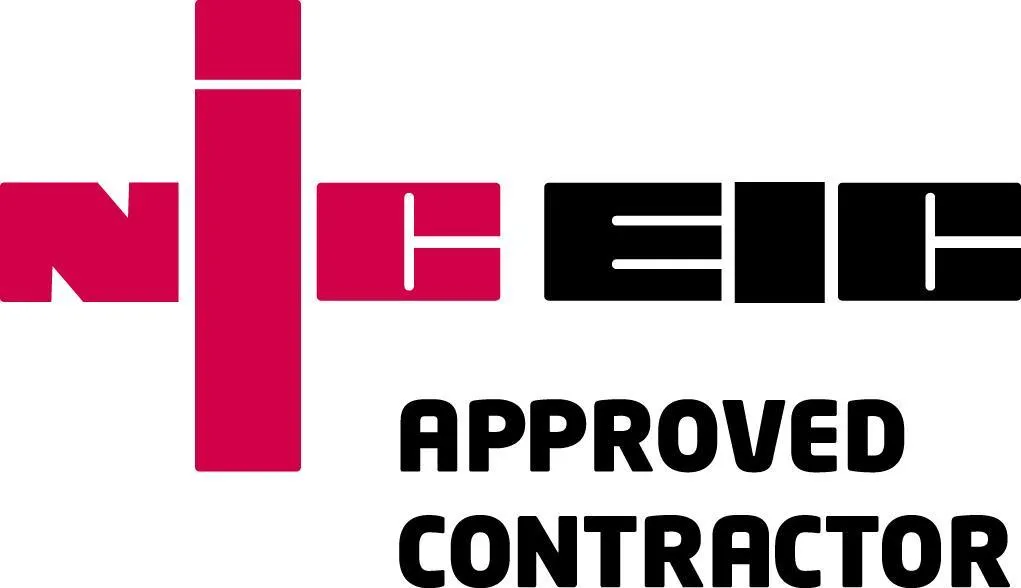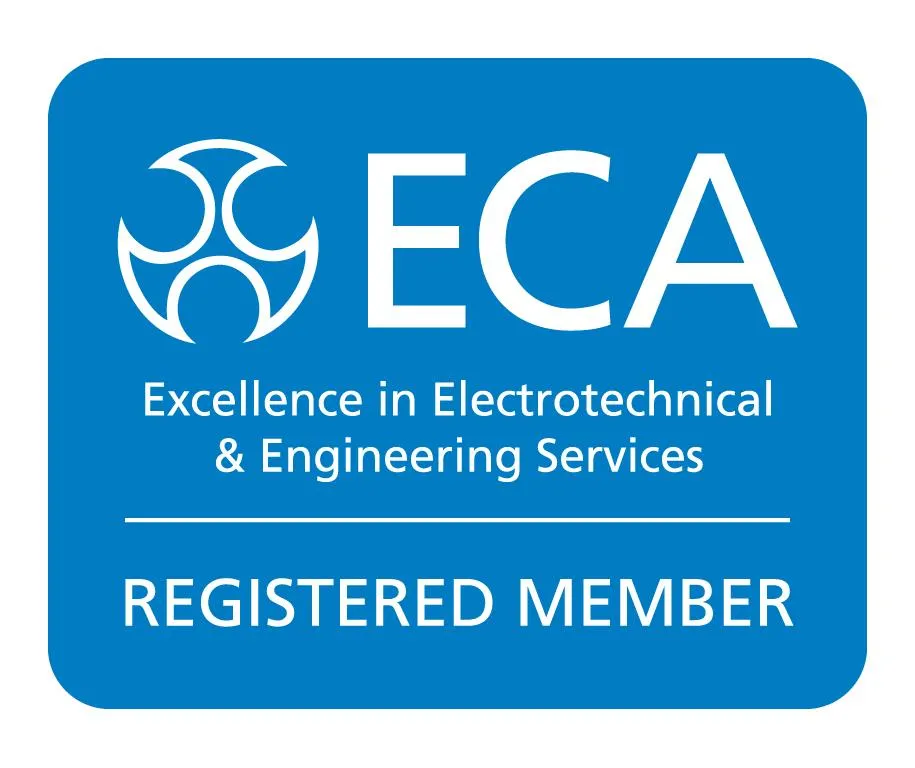Electrical Installation
Walsh Electrical Services carries out electrical installation work (including new wiring and also rewiring; minor works; additions and alterations to existing electrical installations; fire alarm and emergency lighting installations; electric vehicle charging instalations, and other electrical installation works) – whether for 400V three-phase (sometimes erroneously referred to as 415V or 380V), 230V single phase (also erroneously referred to as 240V or 220V) or for 110V Reduced Low Voltage (RLV) centre-tap earthed installations.
Whether domestic; commercial; industrial; agricultural, etc. work is carried out to the current Edition of BS 7671 (IET Wiring Regulations) or I.S. 10101 (NSAI National Wiring Rules) and other relevant Standards. We provide full certification to the person ordering the work upon completion. This is a requirement of the Wiring Regulations/Wiring Rules under all circumstances.
We carry out extra-low voltage (ELV) installations in addition to low voltage (LV), and are competent to deal with different Earthing arrangements, e.g. TN-C-S (whether Neutralised or Protective Multiple Earthing (PME)), TN-S and TT (Direct).
Removal of waste produced can be provided as an optional extra service as we are a licenced upper tier carrier and broker of controlled waste.
Smoke & Heat Alarms
We can supply and fit mains-powered and battery backed-up smoke and heat detection. These are interlinked to ensure that if any device is activated the other alarms will also sound to facilitate early warning. These are installed to the appropriate Standard (BS 5839 or I.S. 3218) and certified to the relevant Standard. This includes installations in private tenancies to comply with The Smoke, Heat and Carbon Monoxide Alarms for Private Tenancies Regulations (Northern Ireland) 2024.
Where interlinked with CO detectors an indicator of the source of the alarm should be fitted. This is due to the fact that different responses are required depending on whether there is the presence of fire or high levels of carbon monoxide.
We are an Aico Expert Installer. Aico is a wholly owned subsidiary of Ei Electronics in Shannon, Co. Clare. These detectors are sold in the south of Ireland under the Ei Electronics brand.
Carbon Monoxide (CO) Alarms
We can also supply and fit carbon monoxide (CO) detection. Carbon monoxide, known as the "Silent Killer", is an odourless, colourless and tasteless – yet poisonous – gas. This includes installations in private tenancies to comply with The Smoke, Heat and Carbon Monoxide Alarms for Private Tenancies Regulations (Northern Ireland) 2024.
CO Alarms should ideally be fitted in every room containing a fuel-burning appliance. They should also be located in or near bedrooms. The CO detectors can be interlinked, but where they are also interlinked with smoke/heat detectors then an indicator of the source of alarm should be fitted as different responses are required for fire detection and carbon monoxide detection.
We are an Aico Expert Installer. Aico is a wholly owned subsidiary of Ei Electronics in Shannon, Co. Clare. These detectors are sold in the south of Ireland under the Ei Electronics brand.
Inspection & Testing
At Walsh Electrical Services we carry out initial verification of all new electrical installation works, complete with the issuance of relevant certification. We also carry out periodic inspection and testing, furnishing the person ordering the work with the appropriate report. Furthermore, we can advise on any necessary remedial work to ensure the safety of your electrical installation. This includes both non-domestic and domestic installations (including those soon to be required by The Electrical Safety Standards for Private Tenancies Regulations (Northern Ireland) 2024). Please visit our dedicated Inspection & Testing page for further information.
Where we come across a dangerous situation which you elect not to rectify then we may issue an NICEIC Electrical Danger Notification or an ECA Report of Potentially Dangerous Electrical Condition, or a RECI Notice of Potential Hazard.
Entertainments Licence (Co. Derry and surrounding areas)
As an NICEIC Approved Contractor and an ECA Registered Member we can provide all necessary certificates and/or reports for the electrical installation, emergency lighting and fire alarm systems required for an Entertainments Licence.
The Council's Guidance Notes state that "Electrical and Emergency Lighting certificates should be completed by an approved contractor on the roll of the National Inspection Council for Electrical Installation Contracting, a member of the Electrical Contractors' Association or a Member of the Institute of Electrical Engineers." Walsh Electrical Services is an Approved Contractor on the roll of the National Inspection Council for Electrical Installation Contracting (NICEIC), a member of the Electrical Contractors' Association (ECA), and the Proprietor is a Technician Member of the Institution of Engineering and Technology (TMIET) – formerly known as the Institution of Electrical Engineers (IEE).
RECI Certs in the 26-Counties e.g. Donegal (Inishowen; Buncrana; Letterkenny)
As a RECI REC all of the Controlled Electrical Works and Restricted Electrical Works carried out by us are fully certified with the appropriate ETCI certificates/reports (RECI Registered and Safe Electric Registered). N.B. The Declaration of Compliance with ET101 for Minor Electrical Installation Works has since been replaced with a Completion Certificate for Existing Installations (Cert No. 3).
ESB Reconnections (Donegal; Letterkenny; Inishowen; Buncrana; Carndonagh; Fahan; Burnfoot)
We can facilitate the reconnection of your electricity supply from the Distribution System Operator (DSO), i.e. the Electricity Supply Board (ESB).
ESB Networks (ESBN) will require a Completion Certificate (RECI cert) from a Registered Electrical Contractor. We will need to visit the premises on at least two separate occasions for this. As the installation needs to be re-certified, additional works may be necessary depending on the condition of the electrical installation and its compliance with the National Wiring Rules when it was constructed.
As such any price quoted for these works is for the inspection, testing and certification only – any additional works required can only be quoted following the relevant inspection and testing. Therefore should additional works be required and these be declined payment will still be required for the inspection and testing work carried out prior to this.
Contact us to arrange this.
Portable Appliance Testing
(PAT Testing)
Walsh Electrical Services provide a Portable Appliance Testing (or PAT Testing) service, complete with certification. We can also carry out repairs to equipment which has failed a PAT test where possible, and if required. All Portable Appliance Testing conforms to the 4th Edition of the Code of Practice for In-service Inspection and Testing of Electrical Equipment, published by the Institution of Engineering and Technology (previously known as the Institution of Electrical Engineers).
Please visit our dedicated PAT Testing page for further information.
Electric Vehicle Charging Equipment (EVSE) Installation
(SEAI & OLEV/OZEV Grants Available)
We supply and install Electric Vehicle Suppy Equipment (EVSE) – commonly referred to as EV charging points. In the 26-Counties you may be eligible for a €600 grant towards the cost of fitting this from the SEAI. As we are an OLEV Authorised Installer, you may qualify for an OLEV grant (of up to £350 per eligible chargepoint) for installations in the north.
Electric Vehicle Charging Points in Donegal & Derry!
Emergency Call-Outs in Derry/Donegal
(Emergency Electrician)
Walsh Electrical Services provide an emergency call-out service both North & South of the border. This includes fault finding, emergency repairs and an out-of-hours service. Please note that a call-out fee will apply. Call-outs outside of normal working hours (including weekends and bank holidays) will be subject to a higher call-out fee and hourly rate than those during normal working hours. Where a repair is declined, fault diagnosis remains a chargeable service. Where it is not possible to complete a repair (e.g. due to non-availability of materials) we shall endeavour to carry out a temporary repair where this is both safe and feasible.
Controlled Electrical Works
(Definition taken from Decision Paper CER/09/009 as redefined by CER/15/249)
Controlled Works are major electrical installation works (including additions, alterations and/or extensions) which are covered by the National Wiring Rules and which involve:
1. the installation, commissioning, inspection, and testing of a new fixed electrical installation requiring connection or reconnection to the electricity network;
2. the modification, installation or replacement of a Distribution Board including customer tails on either side of the Main Protective Device, or new installation in special locations as defined in Part 7 of the National Wiring Rules ET101 and ET105;
3. the installation or replacement of one or more extra circuits in an existing installation, including the installation of one or more additional protective devices for such circuits on a distribution board;
4. Subsystems installed in Commercial, Industrial, and Domestic installations where the installation falls within the remit of the National Wiring Rules;
5. the inspection, testing and certification of existing electrical installations (in accordance with Chapter 62 of the Wiring Rules (ET 101 –Fourth Edition- 2008 and to conform with Regulation 89 of SI No 732 of 2007).
Restricted Electrical Works (REWs)
(Definition taken from Decision Paper CER/13/147)
Restricted Electrical Works will cover:
1. the installation, commissioning, inspection and testing of a new Electrical Installation which is fixed, fastened or mounted or otherwise secured so that its position does not change and requires connection or re-connection to the distribution network or the transmission network, as the case may be;
2. the modification, installation or replacement of a Distribution Board including customer tails on either side of the Main Protective Device or of an Electrical Installation in any of the special locations listed in Part 7 of the National Rules for Electrical Installations, as the case may be;
3. the installation or replacement of one or more circuits in an Electrical Installation, including the installation of one or more additional protective devices for such circuits on a Distribution Board; or
4. the inspection, testing, certification or reporting of existing Electrical Installations covered by Chapter 62 of the National Rules for Electrical Installations;
in a Domestic Property.
Definition of Domestic Property
Domestic Property means:
(a) A dwelling house, flat or maisonette, including:
i. any surgery, consulting room, office or other accommodation not exceeding 50m² in total forming part of it and used in a commercial capacity;
ii. any part of its out-buildings or curtilage used for non-commercial purposes; or
iii. its connection to the electricity network;
Or
(b) A caravan or motor caravan intended for habitation purposes including its curtilage, used for non-commercial purposes, excluding electrical circuits and equipment for automotive purposes.
Examples of Minor Electrical Works
(Taken from Decision Paper CER/13/147)
- Replacement of an electrical accessory such as light switch;
- Replacement or relocation of light fitting where the existing circuit is retained; and
- Provision of an additional socket to an existing radial circuit.




